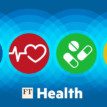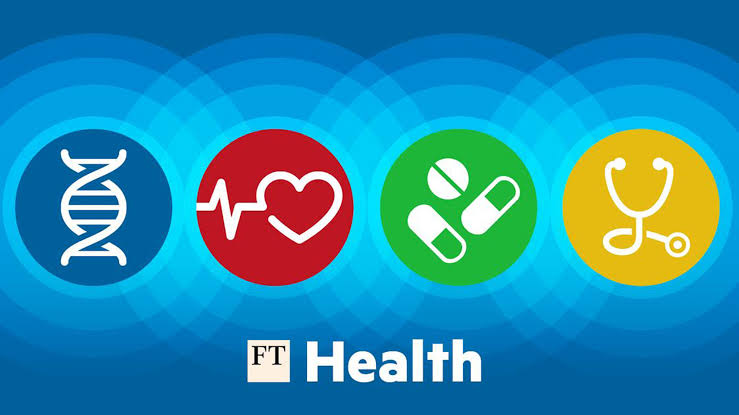Exploring way out of Nigeria’s health services conundrum


By Olubayo Aderemi
One of the many gaps the rampaging COVID-19 pandemic has revealed in the fabric of the Nigerian society is the total absence of plans for emergency preparedness in many areas including healthcare.
By both the AU 2001 Abuja Declaration and the 2003 Maputo Affirmation, all African countries agreed to devote at least 15% of their annual budgets to the health sector. While countries like Rwanda, Botswana, and Zambia have been able to meet this target, Nigeria has had its allocation to health care consistently below the continental average of 9.8% since the 2001 agreement. In the past five years, it has been less than 5% of budgetary allocation
Also read: Education: NGO organises forum on schools in slums
It was with a budgetary allocation of $1.09 billion, representing 4.14% of the total budgetary allocation for 2020, that the country recorded its first case of COVID-19 on February 27. The contagiousness of the disease, the havoc it has been wrecking in European countries with strong health systems, and the perceived weakness of our health system — caused by poor health financing among other things — led to simultaneous rapid responses on many fronts by the federal government, state governments, private sector players, international donors, and private individuals.
Some of these responses included: setting up isolation centres, provision of medical supplies and personal protective equipment, renovation of hospitals, setting up testing laboratories around the country, and provision of relief items to cushion the effects of the pandemic.
However, the question that now begs to be answered is: Will this mark the onset of a new era for a fresh and innovative approach to public health services delivery in Africa’s most populous country?
As Africa’s largest economy with a population of close to 200 million, Nigeria is critical to the future of the region. One in five sub-Saharan Africans are Nigerians and the economic and social impacts of the COVID-19 in the country will have major ripple effects across the continent. With government revenues collapsing following the fall in oil prices, mitigating the health emergency and subsequent economic ramifications from COVID-19 will be an unprecedented challenge for Nigeria’s policymakers.
According to the World Health Organization, health financing is one of the six building blocks of every health system. It deals with issues ranging from fiscal space available for health, who pays for health services, and when and how it is paid, to subsidies and coverage for the poor and vulnerable.
Over the years, health financing has been a major barrier to building a strong health care system in many countries, notably Nigeria.
At the moment, the total health expenditure is derived from the allocations for health and allocations for the Basic Health Care Provision Fund, which is put at 1% of the consolidated revenue fund. Since the inception of BHCPF, however, its allocation has always been below the earmarked 1% of CRF; the allocation in 2020 is about 50% less than the value of the 1% of CRF.
Because Nigeria still depends massively on oil as the basis of her economic funding, the current crash in oil prices has punched a big hole in the country’s economy and capacity to fund her infrastructure reclamation dream. Oil exports currently account for over half of government revenue and generate 87% of Nigeria’s foreign exchange.
At the beginning of the year, the Federal Government had benchmarked its 2020 budget on a price of $57 a barrel, but unfortunately, the collapse in oil prices by 60% since the start of the year to below $30 a barrel has decimated government revenues, which could fall by as much as 45%.
As a result of the attendant drastic restructuring of the budget, the capital budget has been cut by 20% while the recurrent budget has been slashed by 25%. In total, the Federal Government has cut its budget by N1.5 trillion (1% of GDP).
Because of the worsening financial capability of the country, expecting additional government funding for the health sector is a mirage; and without something significantly revolutionary being done in this ugly circumstance, demand for healthcare services, especially critical care services, will soon significantly exceed capacity.
This is likely to have long-term consequences for the health sector, as well as spillover effects to the rest of the economy in many ugly forms.
Thinking out of the box to identify new opportunities to tackle some of the challenges of health financing will therefore mark the beginning of the positive transformation of Nigeria’s health care indices and usher in an era of increased productivity in the country. This is one important lesson the country could take away from the COVID-19 attack.
One of the greatest concerted creative efforts for tackling the coronavirus in the country is the Coalition Against COVID-19 (CACOVID-19) which consists primarily of private sector players. The group was able to raise nearly $100 million to tackle the pandemic and support government efforts.
Initiatives and partnerships like this should be sustained and institutionalized beyond this pandemic era to strengthen the health system, and especially primary health care. Space should also be expanded to involve other well-meaning Nigerians, including religious and traditional leaders who are willing to contribute to the country’s health sector. Doing this will make funds available for the lowest level of care which is grossly underfunded, thereby improving access to care by the most vulnerable group in the society.
While the CACOVID intervention has received wide public acclaim, noble efforts of many organisations and Foundations who have been sponsoring health outreach missions across the country also deserve commendation as part of the concerted private efforts geared towards salvaging the health infrastructure.
One of these unsung organisations is Pre Diagnosis International, a Nigerian Startup that was set up out of the passion and concern of its initiator for the increasing burden of avoidable deaths among the poor and the most vulnerable in Nigeria.
The organisation has been silently funding research efforts into how to harness telehealth advancement to ensure accessibility to health services among the poor and vulnerable segments of the population.
Those close to the operation of PDI in the country said, through its Project Echo and Elkris Foundation initiatives, it has already created some tele-based revolutionary products designed to spearhead the delivery of easily affordable and accessible public health services to the poor and vulnerable, especially in underserved areas of the country. The products, it was further learnt, have a strong capacity to help the country apply her scarce health resources more efficiently while also helping the health sector manage the current inadequate health personnel to a patient ratio more judiciously.
Under its Reach, Rescue and Fortify Outreach Mission, PDI has relentlessly pursued its set objective of helping the country to offer healthcare services to at least two million Nigerians annually between the year 2020 and 2030 in what it terms Project RRF 20-2030. The Outreach Mission arm of the firm was conceived in 2018 and has provided succour to not less than 500,000 Nigerians in many remote locations annually since inception.
There are a few others like PDI whose efforts have also been providing critical interventions in underserved areas of the country.
Governments at all levels need to acknowledge these noble efforts and create a partnership platform to properly explore the outreach missions and other philanthropic interventions as a way of bridging the gap in the nation’s health delivery landscape. A robust alliance between the public and private sectors for overall healthcare services development in the country should be of primary concern to all.
* Olubayo Aderemi is the Convener of Project Revive Nigeria for Tomorrow
( based in Ikeja, Lagos)
The post Exploring way out of Nigeria’s health services conundrum appeared first on Vanguard News.
No comments: